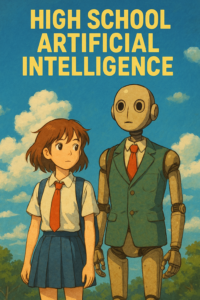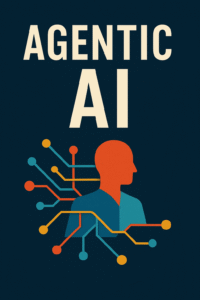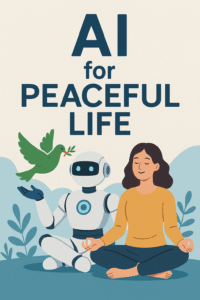In our world, we often determine whether something is good or bad based on the context in which it occurs. Context helps us perceive and interpret situations, influencing our views on what is right or wrong. Through a story, we will explore how context can shape our understanding of good and bad, reminding us to consider the larger picture.
The Short Story: The Lost Necklace
In a small village, there lived a family who possessed a precious heirloom—a stunning silver necklace that had been handed down through generations. The necklace held great significance for them, symbolizing love and unity. One day, tragedy struck when the necklace mysteriously vanished.
The Initial Judgment:
The family was devastated and couldn’t fathom how such an important and valuable item could go missing. They immediately suspected foul play, believing that someone had intentionally stolen it. The context of loss and betrayal clouded their perception of what was good in the situation.
A Change in Context:
As time passed, the family stumbled upon some clues that led them to a different explanation. They discovered that the necklace had accidentally slipped into a concealed compartment of an ancient almirah. This new understanding of the context changed everything. It transformed their perception from one of theft to a simple mistake.
Rethinking Good and Bad:
The family’s view of the situation underwent a profound transformation with the new context. Their anger and feelings of betrayal gave way to relief and forgiveness. They realized that their initial judgment had been based on limited information, and the broader context allowed them to see the situation in a more positive light.
The Power of Empathy:
During their search for answers, the family learned about a neighbor—a young girl who was undergoing financial difficulties. Through conversations, they discovered that she had borrowed the almirah without knowledge of the hidden compartment. Understanding the girl’s struggles and her subsequent guilt changed their perception once again. Empathy helped them see the situation from her perspective.
Lessons Learned:
The story of the lost necklace imparts important lessons about the significance of context in our understanding of good and bad. It demonstrates that hasty judgments based on limited information can be misleading. By considering the broader context, we can cultivate empathy, question our initial assumptions, and develop a more nuanced understanding of what is truly good and bad.
Applying Context to Everyday Life:
In our daily lives, we encounter numerous situations where context matters. The story of the lost necklace reminds us to pause, reflect, and endeavor to comprehend the larger picture before passing judgment. By considering the context, we can cultivate empathy, challenge our assumptions, and foster a more compassionate and comprehensive understanding of what is good and bad.
Python program that determines the context as Good or Bad based on certain conditions:
# Function to determine if the context is good or bad
def determine_context(context):
bad_keywords = ["loss", "betrayal", "theft", "struggles", "desperation", "guilt"]
good_keywords = ["relief", "forgiveness", "positive", "empathy", "compassion"]
for keyword in bad_keywords:
if keyword in context:
return "Bad"
for keyword in good_keywords:
if keyword in context:
return "Good"
return "Neutral"
# Main program
if __name__ == "__main__":
# Define the contexts from the article
contexts = [
"The family was devastated and couldn't fathom how such an important and valuable item could go missing. They immediately suspected foul play, believing that someone had intentionally stolen it. The context of loss and betrayal clouded their perception of what was good in the situation.",
"The family's view of the situation underwent a profound transformation with the new context. Their anger and feelings of betrayal gave way to relief and forgiveness. They realized that their initial judgment had been based on limited information, and the broader context allowed them to see the situation in a more positive light."
]
# Determine the context for each context
results = {}
for i, context in enumerate(contexts):
result = determine_context(context)
results[f"Context {i+1}"] = result
# Print the results
for context, result in results.items():
print(f"{context}: {result}")
Output:
Context 1: Bad
Context 2: Good
In this program, the determine_context() function takes a context as input. It defines two lists, bad_keywords and good_keywords, which contain the respective keywords associated with bad and good contexts.
The function then iterates over each keyword in the bad_keywords list and checks if it exists in the context. If any bad keyword is found, it immediately returns “Bad“. Similarly, it checks for good keywords and returns “Good” if any match is found. If no bad or good keywords are found, it returns “Neutral“.
The main program defines the list of contexts and an empty dictionary to store the results. It then iterates over each context using a loop, calls the determine_context() function for each context, and stores the results in the results dictionary.
Finally, it prints the results by iterating over the key-value pairs in the results dictionary.
Please note that the context classification in this program is based on the specific keywords mentioned in the article. You can modify the bad_keywords and good_keywords lists to include different keywords based on your specific requirements.
Conclusion
Context plays a pivotal role in shaping our understanding of good and bad. The story of the lost necklace underscores the significance of looking beyond surface-level judgments. By considering the context, we can foster empathy, question our initial beliefs, and gain a deeper understanding of what is truly good and bad in different situations. Let us strive to apply this lesson in our own lives, embracing a more compassionate and comprehensive perspective on morality.











